11 Little Things Good People Always Have In Their Homes, No Matter Their Income
Good people are sure to be empathetic, welcoming, and thoughtful when people visit their homes.
 insta_photos / Shutterstock
insta_photos / Shutterstock Being a good person and having a foundational level of empathy for others not only improves your own overall well-being, mental health, and relationships, but it can also have profound benefits for others. Even when it comes to something as simple as welcoming guests into your home or offering someone a smile on the street, kind behaviors can have positive ripple effects.
Many of the little things good people always have in their homes, no matter their income, support these little behaviors and empathetic rituals. When they have loved ones, friends, and guests over, they almost always leave feeling more valued, appreciated, and heard than when they arrived, sending some much-needed love and respect out into the world.
Here are 11 little things good people always have in their homes, no matter their income
1. A welcome mat
 Krakenimages.com | Shutterstock.com
Krakenimages.com | Shutterstock.com
Many feng shui experts who understand the principles, energy, and flow of living spaces argue that welcome mats are incredibly influential for improving luck and boosting positive energy at home. With the right intentional messaging, colors, and style, they can keep dirt, grime, and negative energy from entering your home or living space.
Even if it’s purely functional, giving people space to take off their shoes and remove their outerwear, it protects a kind of sentimental and welcoming energy that makes all their guests feel right at home.
2. Extra blankets and pillows
 Ground Picture | Shutterstock.com
Ground Picture | Shutterstock.com
Making people feel comfortable, seen, and valued is something good people prioritize when they invite guests into their home. For some, lighting a candle and investing in low lighting is the best way to embrace a welcoming vibe. For others, it’s all about home decor. However, extra blankets, pillows, and comfortable furniture are some of the things good people always have in their homes, no matter their income.
Even if it means keeping a closet with “extras” for when people come over or someone needs a place to stay, they’re always equipped to help people when they need it most.
3. Books
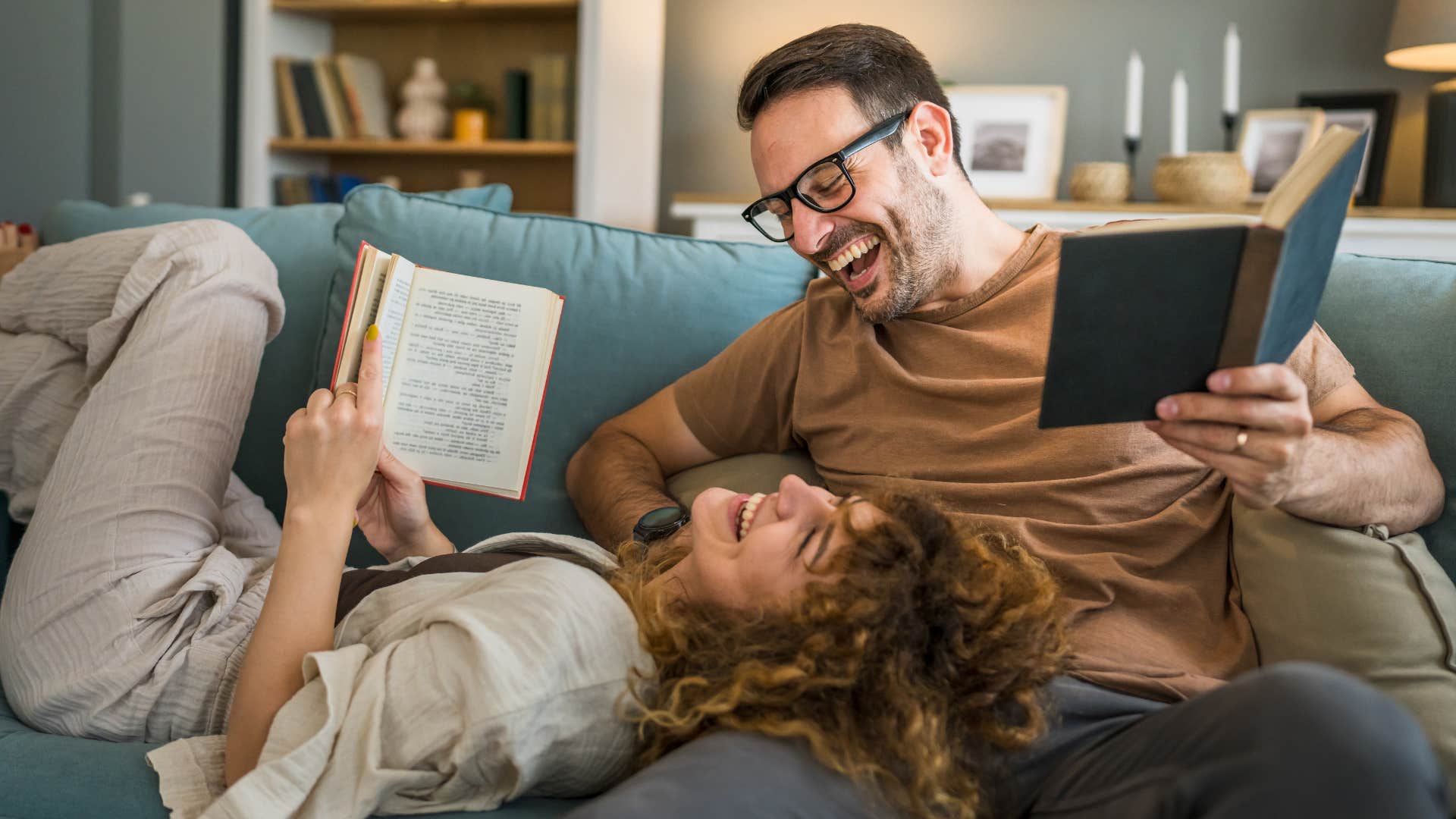 Miljan Zivkovic | Shutterstock.com
Miljan Zivkovic | Shutterstock.com
According to a study published in PLOS One, regularly reading books and literary fiction can dramatically boost empathy in the average person, giving them the tools and perspective to show up better for their loved ones and the people in their lives. That’s why books are one of the little things good people always have in their homes, no matter their income.
They’re mindful about investing in habits that not only offer space for self-reflection and mindfulness but that also craft their identities and give them the tools to be their best selves.
4. Extra food
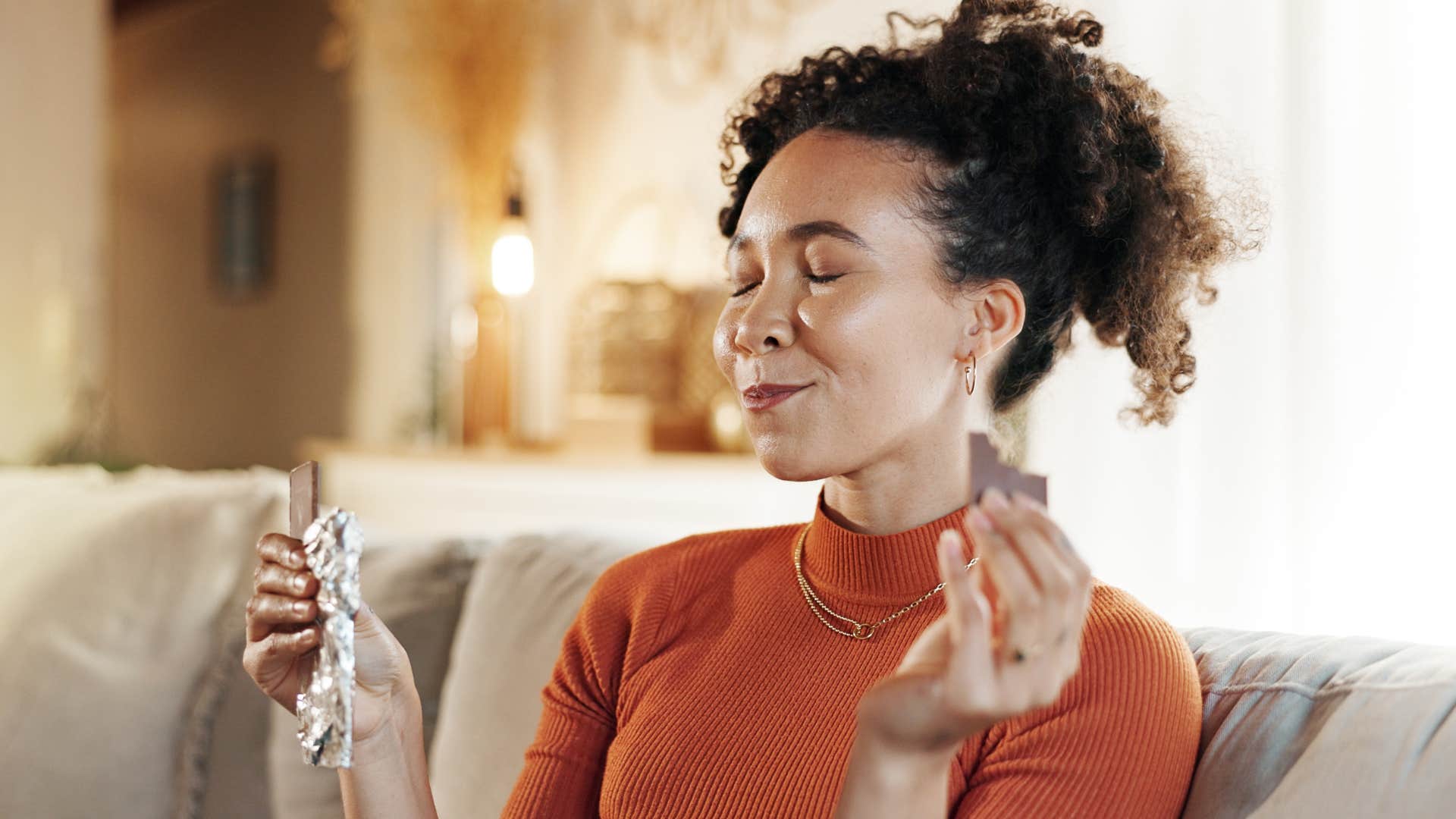 PeopleImages.com - Yuri A | Shutterstock.com
PeopleImages.com - Yuri A | Shutterstock.com
Whether it’s a homemade meal, a pizza they picked up for guests, or easy snacks in the pantry for the neighborhood kids, extra food is one of the little things good people always have in their homes, no matter their income. Many of these good people, who’ve developed resilience and empathy through hardship, know what it's like to worry about money and food security, so they’re intentional about crafting a safe space for people to ask for help.
In many cases, it’s not a matter of survival or food insecurity, but a contribution to a more welcoming atmosphere. They want people to feel comfortable, valued, and of course, well-fed.
5. Plants
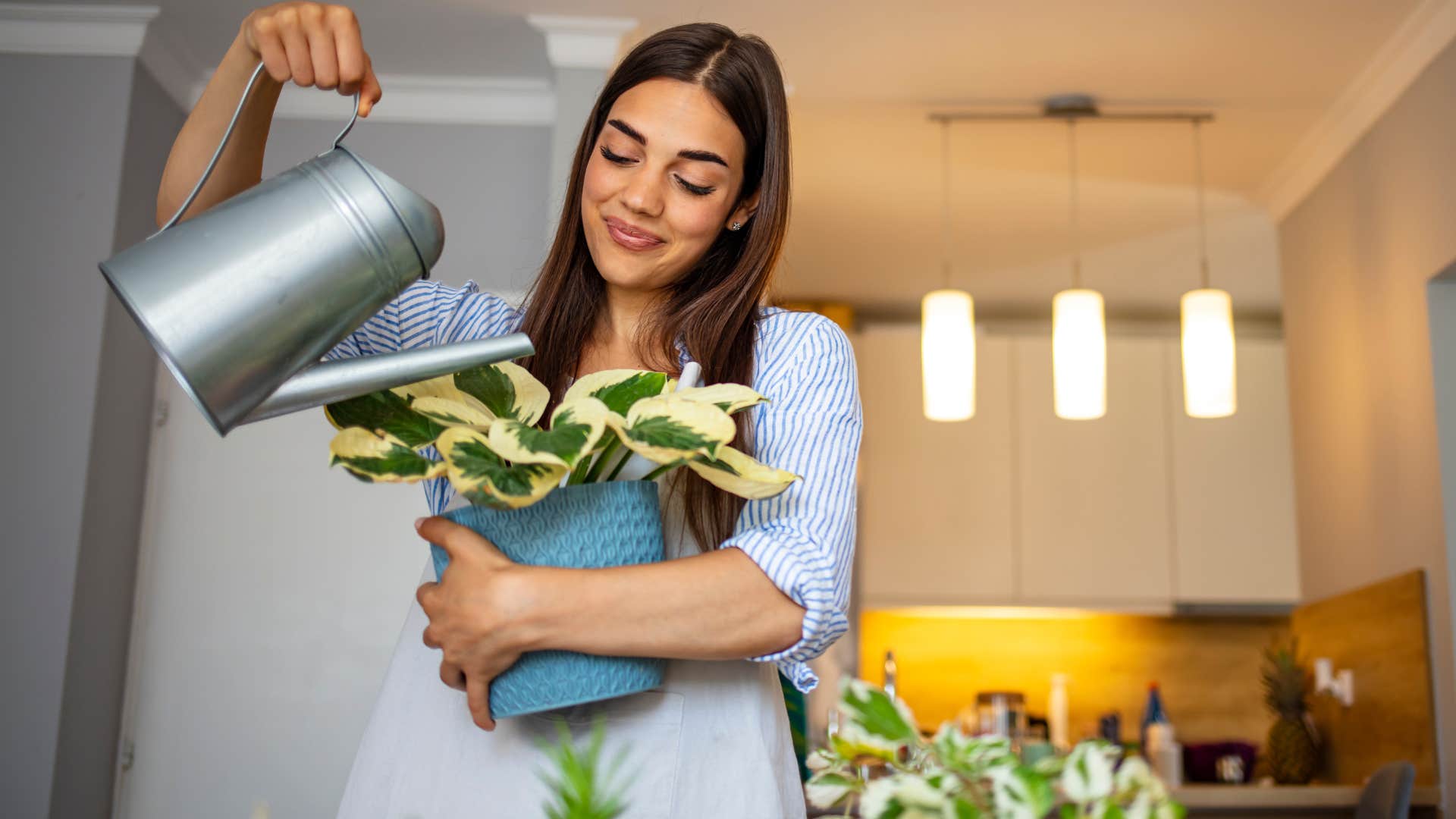 Dragana Gordic | Shutterstock.com
Dragana Gordic | Shutterstock.com
Many people with a deep sense of empathy and a welcoming vibe in their homes have passion projects and hobbies that fulfill them on a deeper level. Whether it’s creative pursuits and passions, daily check-ins and casual social connections, or even taking care of a household plant, their daily rituals promote better psychological well-being and empathy.
Nurturing a plant and caring for it on a daily basis has the same potential to bring welcoming, positive, and calm energy into someone’s home as other daily rituals, according to a study conducted at Rutgers University. That’s why it’s one of the things good people always have in their living space.
When they’re not taking care of a pet or nurturing social connections, they’re cultivating intentional energy and empathy by caring for living things in their home, whether it’s flowers in a vase on the dining room table or an overgrown household plant in their living room.
6. Space for connection
 Gorodenkoff | Shutterstock.com
Gorodenkoff | Shutterstock.com
From cozy corner nooks to a spacious dining room table and a living room with comfortable furniture, spaces for connection with their loved ones and guests are one of the little things good people always have in their homes, no matter their income.
As a study published in the American Journal of Lifestyle Medicine suggests, daily social connections and interactions do more than just support healthy relationships. They also bolster psychological and physical wellbeing in the person engaging in them.
7. A sentimental smell
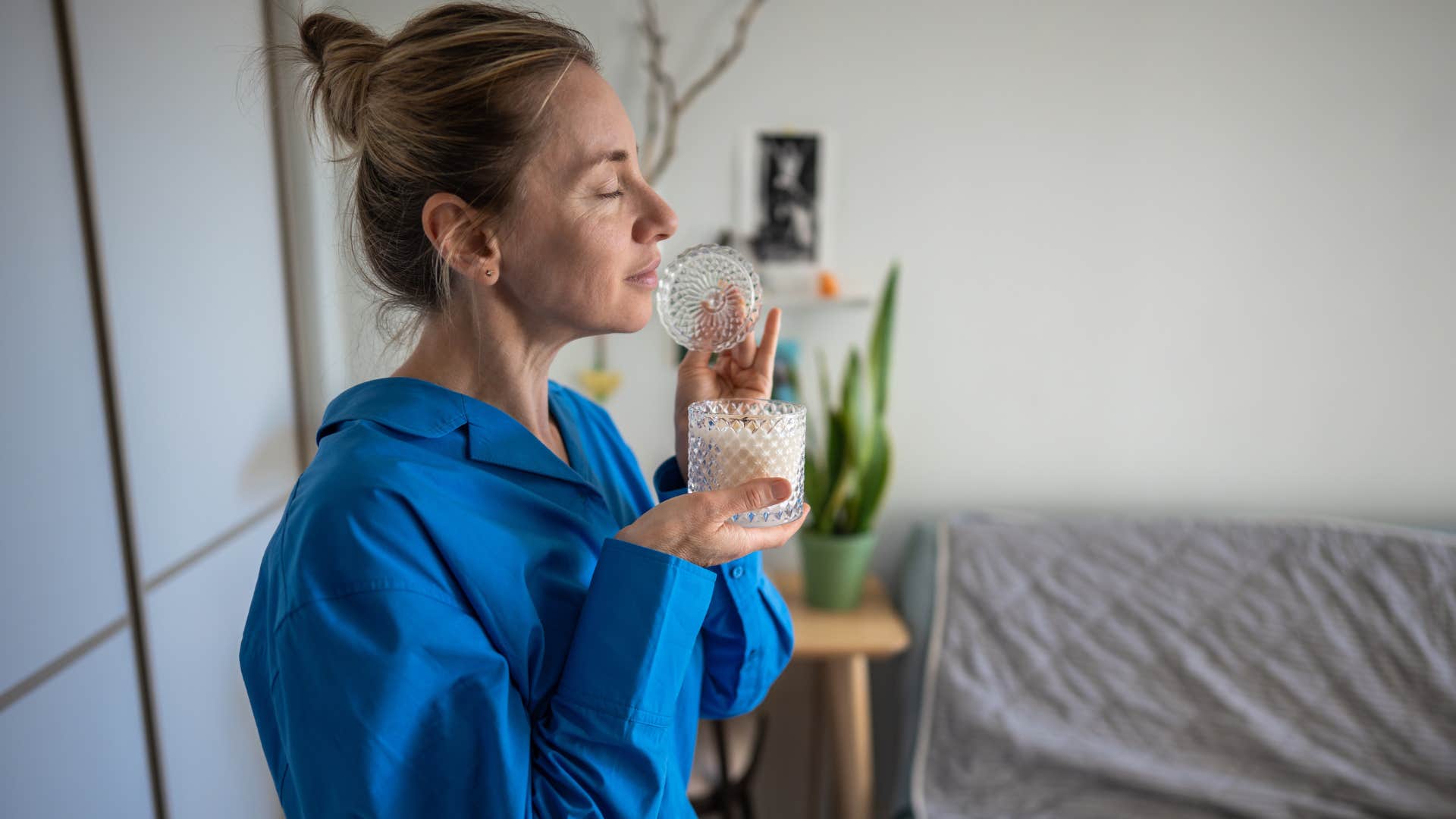 DimaBerlin | Shutterstock.com
DimaBerlin | Shutterstock.com
Whether it’s a candle, a plug-in air freshener, or a homemade meal in the oven, a sentimental and nostalgic smell is almost always one of the little things good people have in their homes, no matter their income.
Of course, when you walk into anyone’s home, the smell is one of the first things you notice, for better or worse. However, for loved ones, friends, and guests of good people like this, the smell of their living spaces is a sentimental, emotional, and welcoming experience, reminding them of memories and experiences they’ve shared in the home.
8. A physical calendar
 Dean Drobot | Shutterstock.com
Dean Drobot | Shutterstock.com
Even if it seems obvious, good people tend to be planners, organizers, and thoughtful communicators. They care about what’s going on in their loved ones’ lives and want to be prepared to show up when they’re needed. Even in their intimate relationships and marriages, a shared physical calendar has more benefits than one person might imagine.
Sharing calendars has been shown to boost intimacy, clarity, and closeness. Essentially, it’s a nontraditional communication practice that ensures couples are on the same page. The same goes for sharing a calendar with anyone or keeping other people’s big life events on your personal calendar. You’re communicating your priorities and ensuring everyone’s needs are met.
9. Family photos
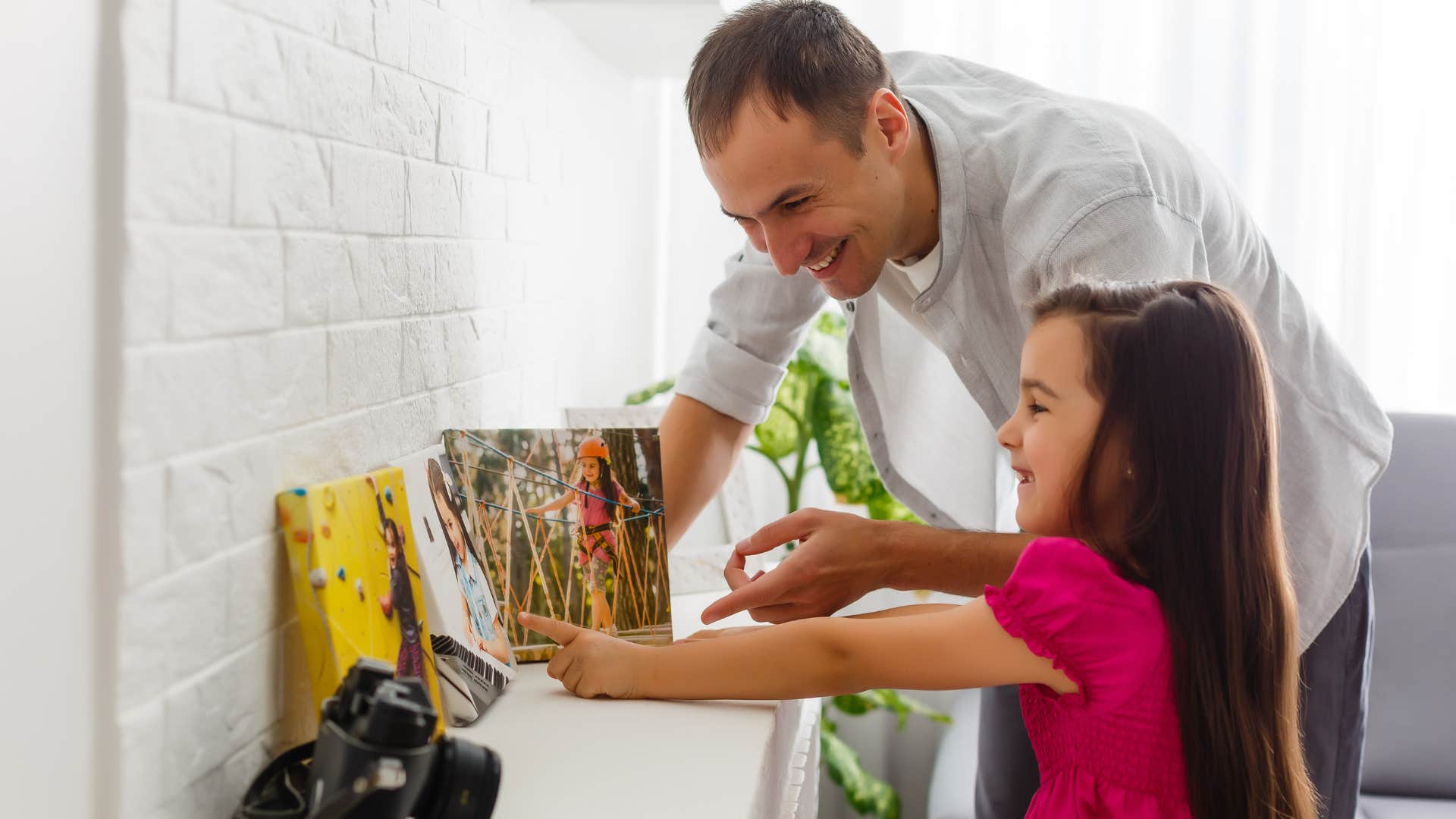 Andrew Angelov | Shutterstock.com
Andrew Angelov | Shutterstock.com
Oftentimes, the subtle home decor choices, artwork, and sentimental photos that people keep in their homes help to craft welcoming energy and experiences for guests, homeowners, and loved ones. According to mental health counselor Jaclyn Gulotta, family photos specifically boost self-esteem, belonging, and community, not only for the people who put them up, but for their children, guests, and family members.
It plays into the positive vibe that good people curate in their homes, considering people always take note of the imagery, decorations, and messaging that are in eyesight in people’s living spaces.
10. A pet
 ORION PRODUCTION | Shutterstock.com
ORION PRODUCTION | Shutterstock.com
According to a study conducted at the University of Buffalo, people who interact with pets on a daily basis tend to experience less stress, higher levels of relationship satisfaction, and a general sense of happiness navigating their lives. That’s why a pet, whether it’s a dog, cat, or goldfish, is one of the little things good people always have in their homes, no matter their income.
Of course, pets are also a sign of a person’s empathy. They’re willing to nurture and care for a living thing that’s not themselves. They ease their owners' pain, loneliness, and stress, and they also provide outlets for connection, unconditional love, and empathy that are hard to ignore.
11. Coffee or tea
 Krakenimages.com | Shutterstock.com
Krakenimages.com | Shutterstock.com
Whether it’s a sign of hospitality or a tool to keep them productive, centered, and mindful at home, tea and coffee are little things good people always have in their homes, no matter their income. Even if it seems small and insignificant, it’s powerful for good people to have offerings when people visit them, even if it’s a cup of coffee or a pot of tea on the stove.
Drinking tea at home is also associated with better brain cognition and functioning, along with more stable mental health. So, even if they’re giving guests tea in lieu of other presents and offerings, they’re giving them the tools to care for themselves without reservation.
Zayda Slabbekoorn is a staff writer with a bachelor’s degree in social relations & policy and gender studies who focuses on psychology, relationships, self-help, and human interest stories.

